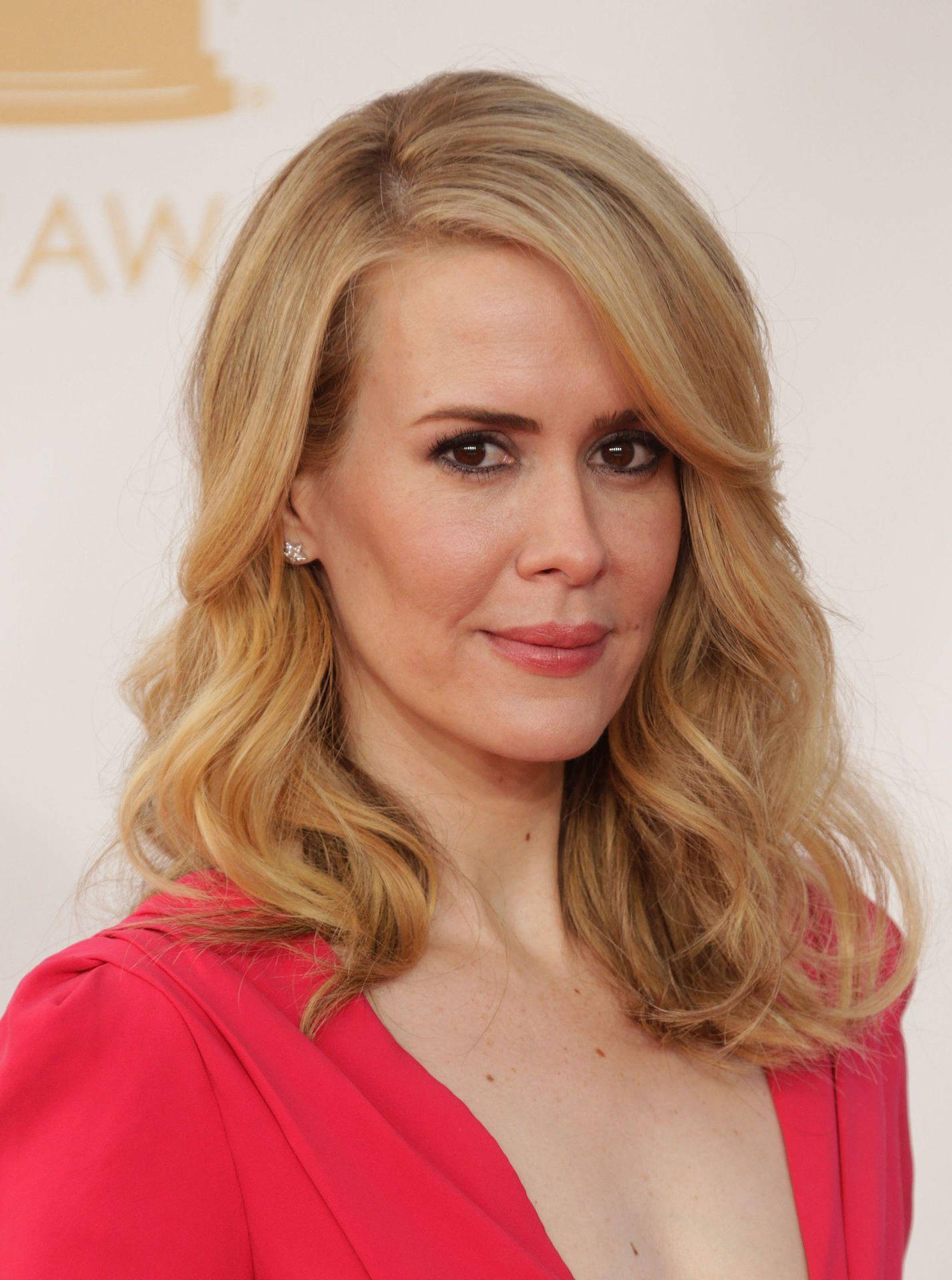Sarah Ward Age: Unveiling The Biblical Matriarch's Enduring Story
In an age where information is instantly accessible, searching for details about public figures, like "Sarah Ward age," has become commonplace. People are naturally curious about the lives, careers, and personal milestones of individuals who capture their attention. However, sometimes a simple search query can lead us down a fascinating path to a figure of immense historical and spiritual significance, whose story, particularly concerning her age, holds profound lessons and timeless relevance. This article delves into the remarkable narrative of Sarah, the biblical matriarch, whose journey is deeply interwoven with themes of faith, promise, and the miraculous nature of life, drawing insights from ancient texts that transcend modern celebrity fascination.
While the contemporary interest in "Sarah Ward age" reflects our desire to connect with modern personalities, it’s equally compelling to explore the foundational stories that have shaped civilizations. The Sarah we will explore here is not a modern personality, but a pivotal figure from antiquity, whose life, as documented in sacred texts, offers a rich tapestry of human experience, divine intervention, and enduring legacy. Her age, specifically, becomes a central theme in her narrative, highlighting the extraordinary circumstances surrounding her life and the fulfillment of ancient prophecies.
Table of Contents
- The Enduring Legacy of Sarah: Beyond "Sarah Ward Age" Searches
- Who Was Sarah? A Matriarchal Figure in Abrahamic Faiths
- Biblical Profile: Matriarch Sarah
- The Significance of Sarah's Age: A Divine Promise Fulfilled
- The Enduring Meaning of the Name Sarah
- Sarah's Humanity: Lessons from a Matriarch's Journey
- Sarah's Role in Abrahamic Religions: A Foundation of Faith
- Why Sarah's Story Continues to Resonate Today
- Conclusion: The Timeless Impact of Sarah's Story
The Enduring Legacy of Sarah: Beyond "Sarah Ward Age" Searches
Our digital age thrives on instant information, leading many to search for specific details like "Sarah Ward age" when seeking knowledge about contemporary public figures. This natural curiosity reflects a human desire to understand the lives of others, to find common ground, or simply to satisfy an interest in their journey. Yet, this very curiosity can also serve as a gateway to exploring figures from the distant past whose lives, though ancient, continue to shape our world. The Sarah we are about to explore is not found in modern headlines, but in the sacred texts that form the bedrock of major global religions. Her story is not merely a historical account; it is a profound narrative about faith, resilience, and the fulfillment of divine promises, where her age plays a crucial, symbolic role. By delving into the biblical Sarah's life, we gain a deeper appreciation for the enduring power of ancient narratives and their relevance to contemporary human experience, far beyond the immediate gratification of a "Sarah Ward age" query.Who Was Sarah? A Matriarchal Figure in Abrahamic Faiths
Sarah, originally known as Sarai, stands as a towering figure in Abrahamic religions. She is not merely a character in an ancient story; she is revered as a biblical matriarch, a prophetess, and a major figure whose life profoundly influenced Judaism, Christianity, and Islam. Her narrative is primarily found in the Book of Genesis in the Old Testament, where she is introduced as the wife of Abraham, a key figure often considered the father of monotheistic faiths. Sarah's significance is multifaceted. In Judaism, she is celebrated as the first of the four mothers of the Jewish people, laying the foundational lineage alongside Rebecca (wife of her son, Isaac), and then Leah and Rachel (wives of her grandson Jacob). Her role as a matriarch underscores her importance in the unfolding of God's covenant with Abraham, a covenant that promised numerous descendants and a great nation. While different Abrahamic faiths portray her with unique nuances, her core identity as Abraham's wife and Isaac's mother remains universally acknowledged, solidifying her place as a cornerstone of religious heritage.The Transformation from Sarai to Sarah
One of the most significant moments in Sarah's story is the divine change of her name from Sarai to Sarah. According to the Book of Genesis, this renaming was not a mere formality but a symbolic act signifying a profound shift in her destiny and identity. The name Sarai is often interpreted to mean "my princess," suggesting a more personal or localized authority. However, when God renames her Sarah, the meaning expands to "princess" or "noblewoman," implying a universal sovereignty and a broader destiny. This transformation occurred when God established His covenant with Abraham, promising that Sarah would be the mother of nations and kings. This renaming underscored her elevated status and her pivotal role in the divine plan, marking her as a figure of universal importance rather than just a personal one. This biblical name change highlights the spiritual depth and intentionality behind her journey, emphasizing her role as a foundational figure in the history of faith.Biblical Profile: Matriarch Sarah
While we might search for the "Sarah Ward age" for a contemporary profile, understanding the biblical Sarah requires a different kind of data. Her "profile" is etched in the narratives of faith, revealing not birth dates but profound life events and spiritual roles.| Attribute | Description (Based on Biblical Texts) |
|---|---|
| Original Name | Sarai |
| Renamed By God | Sarah |
| Meaning of Name | Princess (universal, noblewoman) |
| Primary Relationship | Wife of Abraham |
| Key Role | Biblical Matriarch, Prophetess, Mother of Isaac |
| Significance | First of the four mothers of the Jewish people; major figure in Judaism, Christianity, and Islam; considered the matriarch of the Jewish faith. |
| Notable Fact (Age) | Childless until she was 90 years old; miraculously gave birth to Isaac in her old age. |
| Character Traits | Beautiful (Genesis 12:11), human, made mistakes, showed both faith and doubt. |
The Significance of Sarah's Age: A Divine Promise Fulfilled
Perhaps one of the most compelling aspects of Sarah's story, and what sets it apart from a simple "Sarah Ward age" inquiry, is the profound significance of her age in relation to God's promises. The biblical narrative explicitly states that Sarah was childless until she was 90 years old. This detail is not merely a biographical fact; it is central to understanding the miraculous nature of her story and the unwavering power of divine intervention. In ancient times, barrenness was often seen as a curse or a sign of divine displeasure. For Sarah and Abraham, who were both advanced in years, the prospect of having a child naturally seemed impossible. Yet, God promised Abraham that Sarah would be “a mother of nations,” a prophecy that seemed utterly absurd given her age and physical condition. This promise tested their faith to its limits, leading to moments of doubt, laughter (Sarah famously laughed when she overheard the promise of a child), and even human attempts to fulfill the promise through other means (like Hagar and Ishmael). The fact that Sarah conceived and gave birth to Isaac at 90 years old transforms her story into a powerful testament to God's ability to act beyond human limitations. It underscores the theme that divine plans are not bound by biological or societal norms. Her advanced age made the birth of Isaac an undeniable miracle, serving as a foundational event for the lineage of the Jewish people and, subsequently, for Christianity and Islam. It solidified the covenant God made with Abraham, demonstrating that His word is always fulfilled, regardless of the obstacles. This aspect of Sarah's age makes her story a beacon of hope and a profound lesson in faith for generations.A Mother of Nations: The Miracle of Isaac's Birth
The birth of Isaac to Sarah and Abraham, when Sarah was 90 years old, is arguably the climax of her narrative and one of the most pivotal moments in the Old Testament. Sarah, also spelled as Sarai in the Bible, was the wife of Abraham, who is revered as the father of Judaism. Together, they were destined to be the progenitors of a great nation. The miraculous conception and birth of Isaac, whose name means "he laughs" (a reference to Sarah's initial reaction of disbelief and joy), solidified Sarah's status as the matriarch of the Jewish faith. This event was not just a personal joy for Sarah and Abraham; it was the direct fulfillment of God's covenant. It proved that God's promises are true, even when they defy natural laws. Isaac became the heir through whom the covenant would continue, leading to the formation of the twelve tribes of Israel. Sarah's journey from barrenness in old age to becoming a mother underscores themes of divine grace, perseverance, and the transformative power of faith. Her role as the mother of Isaac firmly establishes her as a foundational figure, a "mother of nations," whose legacy extends far beyond her lifetime and impacts billions of people across various faiths today.The Enduring Meaning of the Name Sarah
Beyond the specific details of "Sarah Ward age" or the biblical matriarch's age, the name Sarah itself carries immense weight and enduring popularity. The name Sarah has been a cherished and significant name throughout biblical history, symbolizing not only beauty and grace but also strength and promise. In the Bible, Sarah is depicted as a woman of remarkable beauty (Genesis 12:11), a trait that, combined with her spiritual significance, contributed to the name's appeal. Sarah is an Old Testament name — she was the wife of Abraham and mother of Isaac, figures central to the narratives of faith. Her story imbued the name with qualities of royalty, destiny, and divine favor, as her name means "princess." This regal meaning, coupled with her pivotal role in sacred history, ensured its longevity. Sarah is an Old Testament name (she was Abraham's wife and Isaac's mother) and has been quite the popular name throughout history, especially in the 20th century. Its consistent popularity across cultures and generations speaks to its timeless appeal and the powerful legacy of the biblical figure. A biblical name and beacon of popularity, parents have been loving Sarah for centuries, drawn to its classic sound, profound meaning, and the inspiring story of the matriarch who bore it. This enduring affection for the name "Sarah" reflects a deep-seated connection to its origins and the virtues it represents.Sarah's Humanity: Lessons from a Matriarch's Journey
While Sarah is revered as a matriarch and a woman of faith, the biblical narrative does not shy away from portraying her as a deeply human figure, full of relatable complexities. This nuanced portrayal makes her story even more compelling than a mere search for "Sarah Ward age" might reveal about a contemporary figure. Sarah was a simple, beautiful (Genesis 12:11), and very human woman. She experienced moments of doubt, fear, jealousy, and impatience, just like we all do. One notable instance of her humanity is her laughter when she heard she would have a child in her old age, a natural reaction of disbelief to an seemingly impossible promise. Another example of her human fallibility is when she stepped ahead of God and tried to handle His business on her own terms by giving her maidservant Hagar to Abraham to bear a child, leading to significant complications and strife within their family. These instances do not diminish her status but rather enhance it, making her relatable and her journey a testament to God's grace working through imperfect individuals. Her story reminds us that even foundational figures of faith were not without their struggles and mistakes, offering comfort and inspiration to those navigating their own human journeys. Sarah's portrayal as a flawed yet faithful woman provides a powerful lesson in resilience and the enduring nature of divine love and patience.Sarah's Role in Abrahamic Religions: A Foundation of Faith
Sarah's influence extends far beyond her personal narrative; she is a foundational pillar in the Abrahamic religions – Judaism, Christianity, and Islam. Her story is not just a historical account but a theological cornerstone that underpins core beliefs about covenant, lineage, and divine promise. In Judaism, Sarah is one of the four matriarchs, her barrenness and subsequent miraculous birth of Isaac symbolizing God's power to create life where none seems possible, and to fulfill His promises against all odds. Her unwavering faith, despite moments of doubt, serves as an example for believers. For Christians, Sarah is often cited in the New Testament (e.g., Hebrews 11:11) as an example of faith, highlighting that "by faith Sarah herself received power to conceive, even when she was past the age, since she considered Him faithful who had promised." Her story is seen as a prefigurement of God's ability to bring forth new life and salvation through seemingly impossible circumstances. In Islam, Sarah is revered as a righteous woman and the wife of Prophet Ibrahim (Abraham), mother of Prophet Ishaq (Isaac). Her story, including the miraculous birth of Isaac, is recounted in the Quran, emphasizing her piety and her role in the lineage of prophets. Across these faiths, Sarah represents a woman of profound faith, whose life, particularly the miracle associated with her age, served as a testament to God's omnipotence and faithfulness, laying the groundwork for the spiritual heritage of billions.Why Sarah's Story Continues to Resonate Today
Even in an era dominated by searches for contemporary figures like "Sarah Ward age," the ancient story of the biblical Sarah continues to hold profound resonance. Her narrative transcends time and culture because it addresses universal human experiences and aspirations. Sarah's journey speaks to themes of hope in the face of despair, the power of perseverance through long periods of waiting, and the ultimate triumph of divine promise over human limitations. Her struggle with barrenness, a deeply personal and often painful experience, makes her relatable to countless individuals who have faced similar challenges. The miraculous birth of Isaac, defying her advanced age, offers a powerful message that life can emerge from unexpected places and that dreams can be realized even when all hope seems lost. Furthermore, Sarah's moments of doubt and human error remind us that faith is not about perfection but about trusting in a higher power despite our imperfections. Her story encourages introspection about our own responses to life's challenges and the ways in which we either trust or try to control our destinies. In a world constantly seeking meaning and purpose, Sarah's legacy provides a timeless example of how an individual's life, guided by faith, can contribute to a grander, enduring narrative that continues to inspire and instruct humanity across millennia. Her story is a testament to the fact that true significance often lies not in ephemeral fame, but in the enduring impact of a life lived with purpose and faith.Conclusion: The Timeless Impact of Sarah's Story
While the initial query "Sarah Ward age" might lead us to seek information about a contemporary personality, our exploration has instead unveiled the profound and enduring story of Sarah, the biblical matriarch. Her life, particularly the miraculous events surrounding her age and the birth of Isaac, serves as a powerful testament to faith, divine promise, and human resilience. From her transformation from Sarai to Sarah, symbolizing a universal destiny, to her pivotal role as the mother of nations, Sarah's narrative is a cornerstone of Abrahamic religions and a source of inspiration for billions. Her story reminds us that true significance is not always found in fleeting fame or easily quantifiable data points like "Sarah Ward age," but in the timeless narratives that shape our understanding of faith, family, and the human condition. Sarah's humanity, complete with her doubts and mistakes, makes her relatable, while her ultimate triumph highlights the boundless nature of divine grace. Her name continues to be cherished, symbolizing royalty and promise, reflecting the enduring impact of her legacy. We encourage you to delve deeper into
Sarah Michelle Gellar Talks Marriage, Return to Acting | POPSUGAR Celebrity

Sarah Snook's Weight Gain Discussed by Fans - She Does Not Want to

Download Sarah Paulson In Red Wallpaper | Wallpapers.com